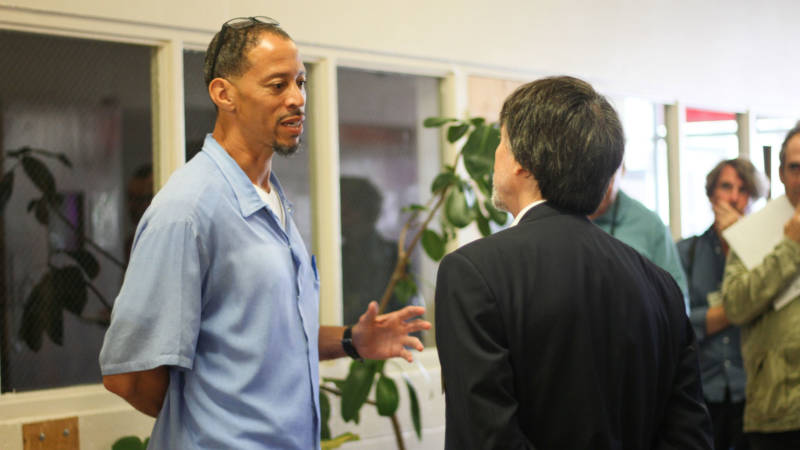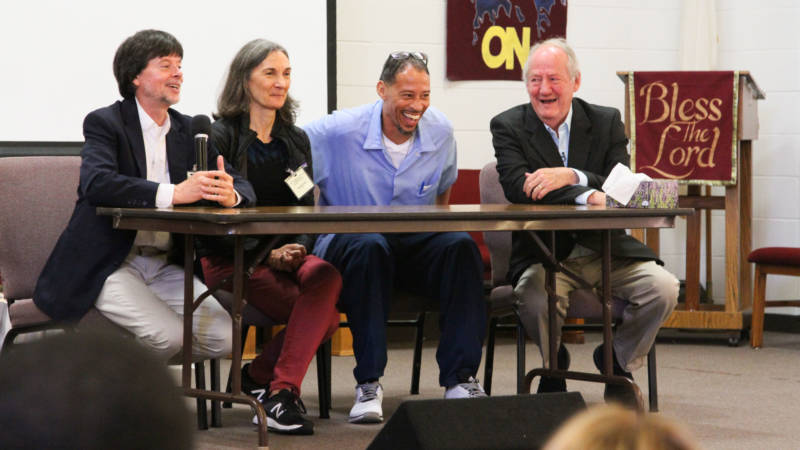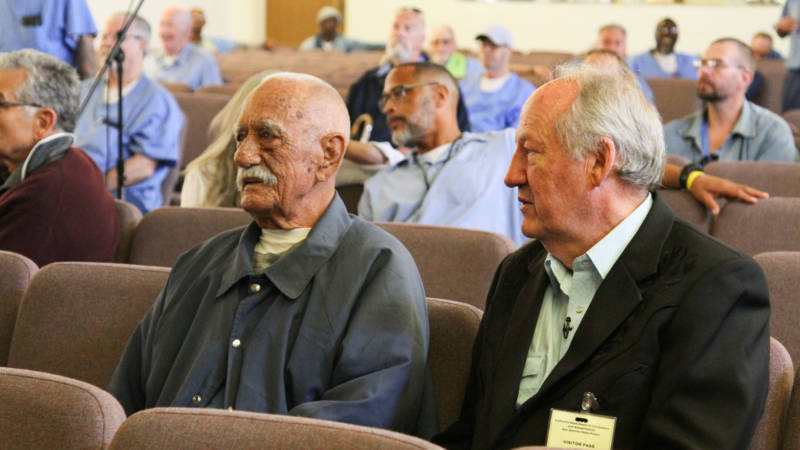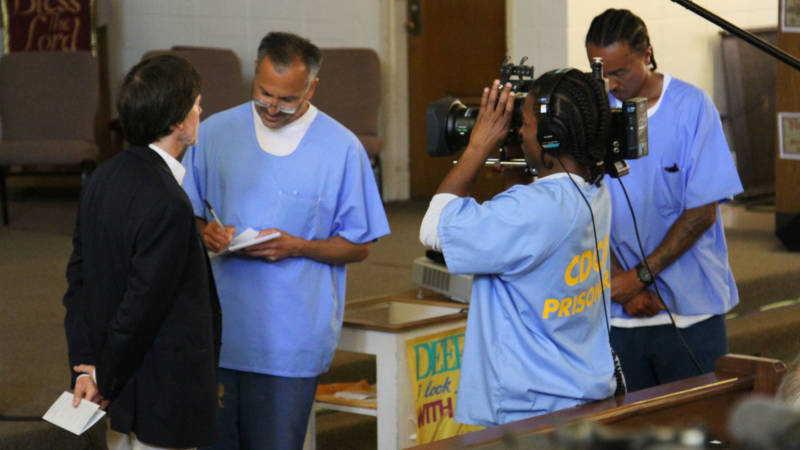Ken Burns, the prolific documentary filmmaker, addressed roughly 100 inmates at San Quentin State Prison on Wednesday with a message about redemption, destigmatizing incarceration and country music.
Country star Merle Haggard, Burns explained, was once reluctant to acknowledge his stint at prisons including San Quentin, fearful it would hurt his professional reputation. But Johnny Cash, well-known for concert recordings at Folsom State Prison and San Quentin, urged Haggard to be open about his time behind bars, and to draw on his experiences.
What Cash knew, and country music affirms, Burns said, is that “the value of a human being does not end when you walk in the front door of a place like this,” adding, “I know I’m preaching to the choir.”

The occasion was a preview of Country Music, Burns’ forthcoming eight-part, 16-hour series on the “uniquely American art form.” He played clips from the series, focused on Cash and Haggard’s ties to California’s penal system, before fielding questions from Rahsaan Thomas, “inside” co-host of Ear Hustle and a contributor to San Quentin News, plus other incarcerated audience members. Country Music airs on PBS stations, including KQED, from Sept. 15–25.
The event, which general population inmates attended voluntarily, occurred in a 373-capacity protestant chapel next to a neatly landscaped courtyard where men in blue denim mowed lawns. In addition to Cash, the prison has hosted musical acts including Metallica, Crime and, most recently, Queens of the Stone Age.




